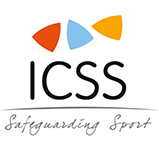ICSS Statement – U.S. Fantasy Sports Must Be Regulated
Chris Eaton, Executive Director of Sport Integrity for the International Centre for Sport Security (ICSS) issued the following statement in response to the New York Times article by Joe Drape and Jacqueline Williams on allegations of insider knowledge at fantasy football leagues:
“Fantasy sports are, plain and simple, sport betting. Despite the subtle differences in the definition between the two industries, it is important not to disguise the clear relationship between fantasy sport and sport betting – and the need for both to be legalized and supervised by competent, independent and well-resourced regulators.
This example of “insider trading” within the U.S. fantasy realm has underlined the clear and urgent need for government intervention in what is currently an opaque and under-regulated industry. Self-regulation in the exploding market will not work. If it continues, there is a very real threat that organized crime and corruption will take hold and fund wider criminal activities.
Given the scale of the industry, with billions of dollars being wagered each year on fantasy sport games across various US sports, including baseball, basketball and American football, it is clear that the U.S. government must act.
The U.S. federal government must give the states a lead which will enable gamblers, sport and the betting industry to be controlled and protected in a national and global context.
Sport alone cannot keep criminals and thieves out of sport betting, and it is important that governments realize their responsibility to assist in developing an open and regulated industry like any other so that sport organizations and fans are protected from both addiction and corruption.
It is not just the U.S. feeling the impact of unregulated sport gambling. At the International Centre for Sport Security (ICSS), we consistently campaign for a globally regulated sport betting economy, thereby protecting it from criminal fraud and taking corrupted money out of sport competitions to prevent fixed games. A regulated sports betting market will also result in additional revenue and tax opportunities, as well as a coordinated campaign to disrupt and destroy the illegal industry to protect the licensed industry.
Bottom line: The real lesson in this fantasy “scandal” is to be honest about sport betting, to not disguise it or hide it, and to force the industry into public regulation and social compliance.”
The issue of Corruption in sport and the threats to integrity worldwide, glimpsed through illegal sports betting tied to organized crime and obscured financials will be discussed during Securing Sport 2015.
Securing Sport 2015, to be held from 3-4 November 2015 in New York, will convene key stakeholders in order to shape policy, support and enhance security efforts, and leverage the developmental power of sport.

